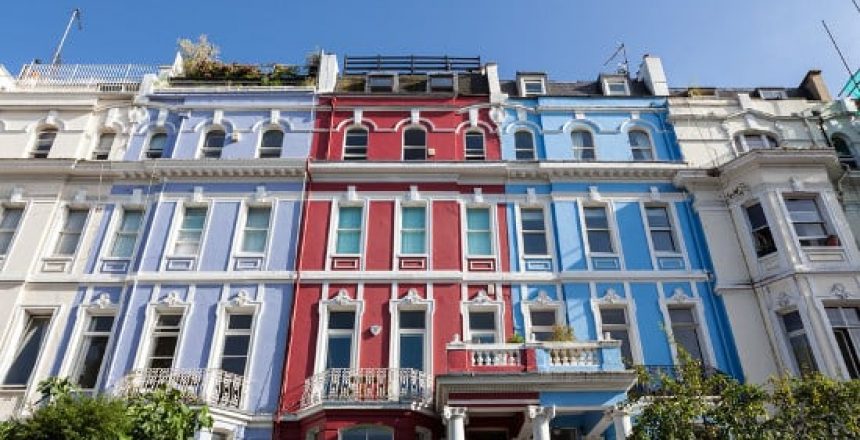2016 was a time of uncertainty for homebuyers. The UK property market saw significant influences from factors such as the recent stamp duty reforms and the impact of the results of the EU referendum result.
The start of 2017 brought about a whole host of predictions for the UK property market from industry thought leaders and experts, but what do the people who are currently in the process of buying a new home think?
In order to find out, Freehold Sale conducted a OnePoll survey of 500 individuals across the UK who are doing just this. The survey covered house prices, the impact of Brexit, and the help that is available to individuals looking to get on the property ladder.
As specialists in this sector, we wanted to conduct this survey to see what impact these changes have had on the nation’s confidence in the property market. The results provide insight into how the future home-owners of the UK feel about buying a property.
Predictions for House Prices
We asked respondents to tell us their predictions for the price of UK properties over the next 12 months. The results revealed that almost half of the respondents (48%) expect house prices to rise by as much as 10% over the next year (25% believing a 0-5% rise was likely and 23% at 6-10%).
We then asked respondents to share their perceptions of house prices in their area. The survey suggests that 4 in 10 Brits (41%) think that properties in their area are overpriced. According to The Office for National Statistics house price index, house prices in England increased by 7.4% over the year to October 2016. The prices in Wales rose by 4.4%, prices in Northern Ireland increased by 4.2%, and there was a 4% increase in prices in Scotland. The average house price in England is now £233,000, which is much higher compared to the average house price in Wales (£147,000), Scotland (£143,000), and Northern Ireland (£124,000).
When looking at these responses by region, it comes as no surprise that individuals looking to buy a property in London (57%) think that local properties are overpriced. The ONS has published the current UK house price averages, which reveal the average house price in London (£474,000) is more than double the average for the rest of the country (£233,000).
Following on from London, the regions where respondents also feel that properties in their area are overpriced include the South East (54% ) where the average house price is £311,000, the South West (52%) where the average is £240,000, and East Anglia (50%) where the average house price is £275,000.
The Impact of Brexit on the Property Market
In order to find out the reasons behind our respondent’s attitudes towards the UK property Market, we asked whether they thought the result of the EU referendum will be responsible for the change in property prices over the next 12 months.
The results indicate that almost half of Brits (43%) believe that Brexit will have an impact on property prices. There have been mixed messages since Britain’s decision to leave the EU in relation to the impact on the UK property market, although 28% of respondents think that Brexit will not have an impact on prices, almost the same number (27%) confessed to not knowing either way. This shows the potential confusion individuals are facing when it comes to the current state of our economy.
Getting onto the Property Ladder
For many young people in Britain, the prospect of buying their first home is becoming more and more out of reach. According to the Halifax First Time Buyers review, the average age of a first-time buyer is 30 (up from 29 in 2011) and regionally, the average age of a first-time buyer is highest in London (32) reflecting the lack of affordability of property in that area.
What help is available for first-time buyers?
During the survey, we asked respondents to tell us whether they are relying on Government schemes to buy their new home and what type of property they’re looking for. Almost a third of all respondents (31%) are looking to buy a new build property, and this percentage was highest amongst 25 to 34-year-olds (39%).
The results reveal that Government schemes such as Help to Buy, designed to assist first time buyers, are important factors for young buyers. The scheme, unveiled in 2013, offers first-time buyers the opportunity to purchase a home with a Government-backed loan worth up to 95% of the value of the property. 44% of respondents aged between 18 and 24 said they will be relying on the Help to Buy scheme when buying their first home.
Unfortunately, the Help to Buy scheme is being stopped by the Government, with the mortgage guarantee aspect ceasing at the end of 2016 and the scheme having been stopped completely in Scotland and Wales in 2016.
The Chancellor, Philip Hammond, had stated in a letter to Bank of England governor Mark Carney that the mortgage market had become less reliant on the Help to Buy mortgage guarantee. There are now over 30 lenders offering mortgages worth 90-95% of a property’s value independently of the scheme. This essentially means that buyers should still be able to access 5% deposit mortgages even in the absence of the scheme, however, this may prove to be an expensive option. Martin Lewis, of MoneySavingExpert, has advised buyers that it’s worth saving towards a 10% deposit mortgage as interest rates decrease at this point subsequently providing cheaper mortgage deals.
Another scheme that has seen a large level of success is the Right to Buy Scheme. The basis of this being that a council tenant living in a property for a set period of time has the ability to purchase their council home at a reduced rate. The results show that the Right to Buy scheme is most popular amongst 35 to 44-year-olds (12%) in the UK.
This research has highlighted a distinct lack of confidence in the current UK property market amongst buyers. As well as the 41% of respondents who consider the properties in their area to be overpriced, 48% believe that house prices are set to rise by up to 10% over the next 12 months. In regards to the cause behind this increase, almost half of our respondents (43%) believe the EU referendum will be responsible for the change in UK property prices.
Despite this lack of confidence, there is a new generation of potential homeowners who are hoping to take their first steps onto the property ladder through the soon to be discontinued Help to Buy scheme. Although there are still opportunities for first-time buyers to access 5% deposit mortgages, it will be an expensive option.
What are your levels of confidence in the UK property market? Do you think more should be done to help first-time buyers purchase their first home? Share your thoughts and predictions for the UK property market in 2017 with us in the comments below.


